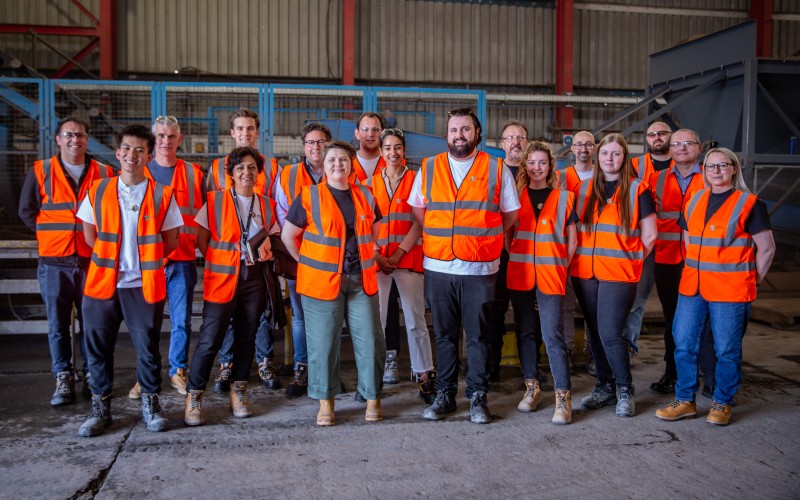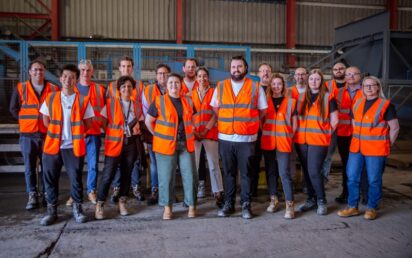Material Evolution, an advanced materials company producing smart, low carbon cement from industrial waste streams, has raised £15m in Series A funding.
The investment will be used to scale the production of its breakthrough low carbon cement, which has an 85 per cent lower carbon footprint compared to ordinary Portland cement (OPC).
Middlesbrough-based Material Evolution uses proprietary technology to produce decarbonised cement, with the goal to eradicate the 8 per cent CO2 emissions produced by the cement industry globally
The round was led by KOMPAS VC, an early-stage VC firm focused on the decarbonisation of the built environment and the manufacturing industry, with participation from Norrsken VC and CircleRock Capital.
They join Material Evolution’s existing institutional investors including Playfair Capital, At One Ventures, SkyRiver Ventures and HG Ventures.
Material Evolution has also strategically partnered with SigmaRoc, a specialist quarried materials group based in the UK and Northern Europe, to develop a range of low carbon concrete products.
Founded by Dr Elizabeth Gilligan and Sam Clark, Material Evolution has developed an innovative low-energy, low CapEx manufacturing process which uses zero heat and solves the high CO2 emission problem in conventional cement production.
The cement industry is currently responsible for 8 per cent of global CO2 emissions and is facing increasing pressure to reduce its carbon footprint.
Material Evolution’s proprietary process replaces the need for energy-intensive kilns with an alkali-fusion process. This produces cement at ambient temperatures from a variety of industrial wastes and feedstocks, eliminating the use of fossil fuels.
Dr Elizabeth Gilligan, co-founder and CEO of Material Evolution, said: “What makes Material Evolution different is that we don’t believe it will be one material that saves the world. We believe that to rapidly scale across the industry we need to have localised material sources.
“We have created a product that not only produces lower emissions but is also lower in cost and has a higher performance.
“There is no silver bullet solution, but we believe that by decentralising cement production and using previously inaccessible waste we can scale our solution on a global level and truly change the cement industry.
“We have spent our time on factory floors with customers building a solution that fits into the existing industry infrastructure and limitations. This is how Material Evolution wins in the race to decarbonise the cement industry.’”
Sam Clark, co–founder and COO, said: “Since closing our seed round in September 2021, Material Evolution has achieved significant market traction from advanced offtake agreements amounting to over 35,000 tonnes of our product now entering the market after selling out our first year of production.
“The investment will primarily be used to scale up production facilities and invest into further R&D to develop additional products for different construction use cases. The funding will also allow us to create blueprints for scaling and licensing our technology across the UK, Europe and beyond.”
Commenting on the investment, Sebastian Peck, Partner, KOMPAS VC, added: “Decarbonising building materials like cement and steel are core to our investment focus. The cement industry produces between 800 to 950 kg of CO2 per tonne of cement it produces, which is unacceptable.
“Material Evolution is the best kept secret in this space and has demonstrated that by taking a fundamentally different approach to product development.
“The carbon footprint of cement can be dramatically reduced and eventually eliminated, without compromising on product performance. Material Evolution is therefore perfectly placed to meet the rapidly growing market demand for low carbon cement and accelerate the decarbonisation of the built environment.”


